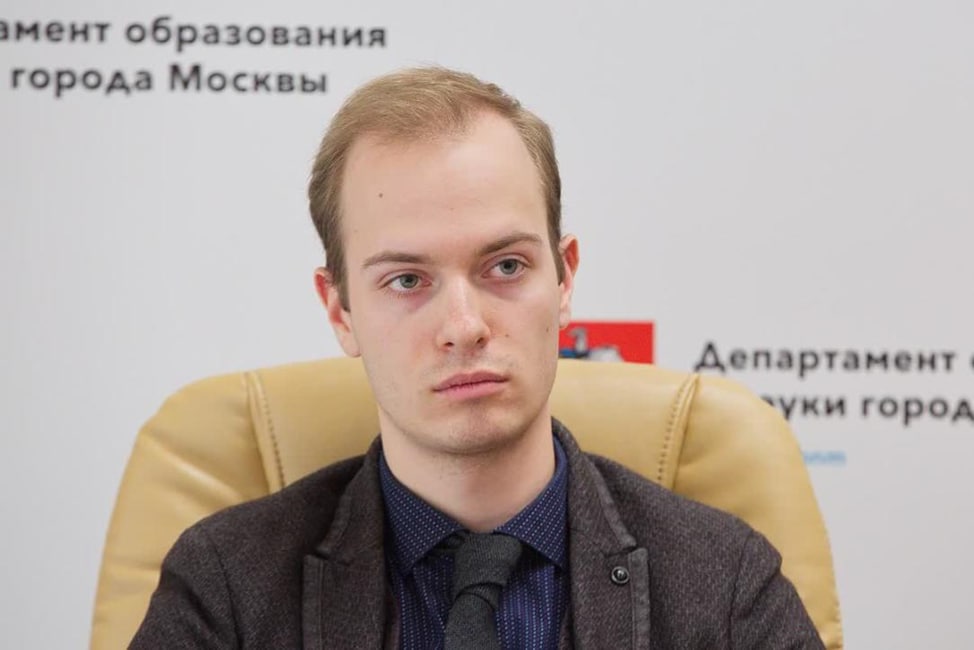HSE MIEM Holds 2020 GameDevTech Hackathon

This month, the HSE MIEM GameDevTech 2020 game development hackathon held its closing ceremony where the winning student teams were announced. The HSE News Service looks at how the hackathon was organized and who won.
The HSE MIEM GameDevTech 2020 game development hackathon took place from November 28 to December 11. The GameDev Junior league attracted school students from across Russia, and the GameDev Master league included HSE students.
The hackathon partnered with large companies such as MY.GAMES, an international game brand and part of Mail.ru Group; GeekBrains educational platform; and the Institute of Digital Transformation of Education. Industry experts were on the hackathon jury and conducted a series of workshops for everyone interested. In addition, the partners awarded prizes to the winners.
The Idea of the Event
Ilya Semichasnov, sixth-year student of Cyber Security, was the main organizer of the hackathon. Since his second year in the programme, Ilya has been interested in game development, and today, he is working on a project to create a multiuser video game. His academic supervisor, Alexander Belov, suggested organizing a game development hackathon at MIEM. The idea received support, and the organizing team found partners in My.Games and GeekBrains.
Format, Topics, and Organizational Difficulties
Ilya explained that in fact, they at MIEM created a game developing game. ‘In the hackathon, participants complete assignments and get points in order to pass to the next level and raise in the ranking.’ It was not easy to choose the topic of the competition. ‘We spent a lot of time choosing it, and then, realized that the hackathon would finish on December 10,’ recalls Ilya. ‘This is the release date of the year’s most expected game - Cyberpunk 2077. Thus, we chose cyberpunk as the main topic of the event.’

Organizing a hackathon is not an easy task. At first, it was not easy to get feedback from all the participants. It was also difficult to check the work submitted by the participants: this is a long process, particularly for the jury. Nevertheless, everything was assessed in time and properly. The awards ceremony broadcast is available here. ‘MIEM GameDevTech 2020 HSE was a kind of a risky venture. We organized it for the first time, but we are going to make it annual,’ said Veronika Prokhorova, Deputy Director of MIEM.
Participating and Winning
The hackathon received over 200 applications: 43 school teams from across Russia and 10 student teams from HSE University. 30 teams in GameDev Junior and 3 teams in GameDev Master made it to the finals. There were three best teams in each of the leagues. University students had to implement a good game prototype, and school pupils created a video game model by completing assignments at different levels of difficulty. Almost all participating teams made good game prototypes, and experts played them enthusiastically.
Parts of Games Presented by Hackathon Participants
The winner in GameDev Junior league was HippityHoppity team (School No. 2109, Moscow), and the prize winners were Cyber Kotyata from HSE Lyceum and Bratstvo Dedlaina, consisting of pupils from various schools in Moscow and Moscow region.
In the GameDev Master league, the winner were teams Team4 and Iriski. The teams included students from various graduate programmes: future software developers, psychologists, designers, economists and managers. The winner was CringeDev team. The team included fourth-year students of applied mathematics: Artem Nikitin, Alexander Prikhodov, Nikita Golubev and Dmitry Zhernokleyev.
According to Artem Nikitin, the team had very modest experience with game development—only 18 months. Their first joint project was a game that combined RTS and TD genres, which they developed as part of project-based learning during their third year of studies.

Artem’s team met many challenges as they were completing the assignment. ‘First, we were short on time. We hadn’t had any experience with game development in such short periods of time. Second, our team lacked a designer, so we had to look for visual assets, and there are not many of them in this setting (cyberpunk). Also, the assets placed certain limitations on game mechanics,’ Artem said.
The CringeDev team are happy with the new experience and, of course, winning first place. ‘But, of course, we still feel that we could have done something better and more,’ Artem added.
Cyber Kotyata: Prize Winners in the School League
Taking second place in the GameDev Junior league was Cyber Kotyata. The team included tenth-grade students of HSE Lyceum specializing in ‘Information Science, Engineering and Mathematics’.

Artem Smirnov
We really enjoyed participating in the HSE MIEM GameDevTech 2020 Hackathon. I learned to work with Blender graphic editor and practiced using GitHub for creating projects. I was happy to see that the organizers created cards with assignments to help beginners and demonstrate the key stages of game development. Meanwhile, I don’t believe it is necessary to use passive proctoring. Because of it, I had to repeatedly re-check whether my friends were recording the screen. Sometimes, there were screen sharing interruptions, and we had to spend time fixing glitches. Despite this all, we enjoyed everything. Participating in the hackathon has been a new and thrilling experience for me.

Alyona Borisyuk
My experience has only been positive. We have a great team, and we have created a really interesting game. What is also important is that we had a great time. There should be more events like this, since it is so much fun. I would certainly participate in another hackathon.

Andrey Kryukov
Everything was cool, but the proctoring procedure made it harder and slowed down my computer. It was nice to see the organizers entering the rooms and talking to participants. I personally liked the card system. It helped our team to self-organize. All in all, I enjoyed everything!
Prepared by Valeria Nemna, second-year MIEM student (MIEM Media Centre)
See also:
Engine for Game Development Created at HSE University
The ‘Game Engineering and Interactive Systems’ workshop team of the HSE Tikhonov Moscow Institute of Electronics and Mathematics (MIEM) invites everyone to participate in testing the Claw Engine, the first version of their game development program. This new tool allows for processing three-dimensional images and programming one’s own scripts.
FCS Team Takes First Place at Rosneft Universities’ Hackathon
A team from HSE University’s Faculty of Computer Science took first place in a Rosneft hackathon held in October among the country’s universities. The hackathon was organised by the research institute RN-BashNIPIneft LLC. The competition participants had the chance to try their hand at solving real production problems.
‘It Doesn’t Test, It Teaches’: Hackathon for DANO Data Analysis Olympiad Held in Nizhny Novgorod
A hackathon was held in Nizhny Novgorod for students in grades 9–11 as part of the Data Analysis National Olympiad (DANO). More than 90 school students in grades 9–11 from Moscow, Nizhny Novgorod and the surrounding region, St Petersburg, Samara, Cheboksary, and Ufa—a total of 15 Russian regions—took part in the hackathon.
Students from Leading Universities Take Part in Hackathon Organised by MTS and HSE University
At the end of June, HSE University hosted Reklamathon, an inter-university hackathon in which participants must develop a prototype product for forecasting the effectiveness of advertising campaigns on social media. The event was organised by HSE University’s Data-Driven Communication master’s programme, which trains communications industry specialists. The hackathon’s assignments and judges were arranged by MTS, Russia’s largest digital ecosystem.
‘I Like to Think that the Solutions We Find Can Help People in the Future’
Innopolis University has announced the results of Global Al Challenge, an international AI industry online hackathon in which teams of developers compete to create new materials using artificial intelligence. The DrugANNs team, which included students from the HSE University Faculty of Computer Science, took third place.
HSE Students Take Third Place at Junction International Hackathon
This year 1500 participants from 100 countries took part in the Junction International Hackathon. A team of second-year students of the HSE Faculty of Computer Science (Timofey Smirnov, Igor Zverev, Ainur Nuriev and Aldar Danilov) led by Maxim Dyakov (first-year student of the programme in E-Business) presented a smart lighting project.
Eight Teams Compete in HSE’s First Data Science Hackathon
HSE University has recently hosted an SAS Data Hack Platypus data analysis hackathon, where teams competed to solve a case problem provided by the online hypermarket, Utkonos (or, in English, ‘Platypus’).The top five finalists received devices from partner companies as gifts.
MIEM HSE Students Develop MRI Smart Blanket
The smart blanket was presented at Sirius Scientific and Technological University in Sochi and awarded first place at a physical sciences hackathon. Over the course of one day, 15 student teams had to choose a topic, study the market, develop a concept, and present a prototype of their electronic device.
‘Simply Knowing How to Code Isn’t Enough’
Over the last several years, hackathons have gone from being competitions for geeks to a must-have line on the resume of almost any job seeker. HSE University students are participating in these kinds of competitions more and more often, and they sometimes even organize their own. Alexander Popovkin, head of HSE’s Hacking Club, spoke with HSE News Service about the benefits and drawbacks of hackathons.
HSE University Co-organizes Hack.Moscow v3.0
Approximately 200 teams (764 participants) gathered at Hack.Moscow v3.0, an annual hackathon that was held for the third year in a row from October 25 to 27. The winners shared 1 million roubles from sponsors and had the opportunity to earn preferential admission to master's programmes at HSE, the hackathon’s partner university.


